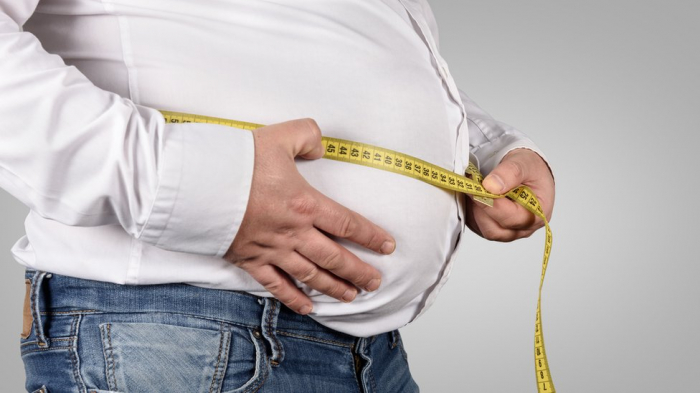COVID-19 may continue to be a danger for people with obesity even after vaccines arrive—because of their impaired immunity. Now (you knew this was coming) is the perfect time to do your best to lose the extra weight.
Who isn't stressed out by the thought that you can get a potentially serious illness while shopping in a supermarket or passing an unmasked neighbor? A diet and exercise plan, or virtual diet counseling, or a support group are ways you can take action.
Don't start seeing yourself as overweight if you're actually slender. But for others, those of us who could lose a few pounds (I'm one of them), there's a tendency to ignore the accumulation. Since some 42 percent of the nation's adults are obese, and up to three-quarters are overweight, it's easy to see yourself as normal. We're not unusual, no, but that doesn't mean it's normal.
COVID-19 is a reminder that excess weight isn't safe.
Early in the pandemic, doctors were alarmed when they saw seemingly healthy young people in emergency rooms with COVID-19 infections—except for their weight.
The Centers for Disease Control and Prevention (CDC) currently reports that obesity triples your risk of being hospitalized if you get COVID-19.
It may also triple your risk of dying, according to a study of nearly 7,000 COVID-19 patients in Southern California. In that research, if you were morbidly obese, your risk was more than four times higher.
You may find the word "obese" calming. I'm not obese! In general, the heavier you are above normal, the greater your risk. At first, the CDC focused on obesity, but now the agency says that being overweight is a risk factor, too.
There is a movement against "fat-shaming," which, as a not-thin person, I applaud. Casual shaming is unkind. But it is not shaming to remind people that carrying significant extra weight can cut years from your life, even in non-pandemic times. It is something like uncontrolled high blood pressure, which is also common in the United States and increases your chance of a serious case of COVID-19.
Why Extra Weight Makes COVID-19 Worse. One reason is mechanics: A big beer belly pushes up on the diaphragm, which then pushes on the lungs, restricting airflow. Airways in the lower lobes of the lungs collapse. Many people with obesity develop sleep apnea—when your windpipe is blocked as you breathe while sleeping. Breathing problems in turn increase the risk of pneumonia and stress on the heart.
Since you’re already breathing with some effort, any impact the new coronavirus has on your breathing is more dangerous.
People with obesity are also more likely to have other diagnoses that make COVID-19 more dangerous: besides high blood pressure, there is Type-2 diabetes, as well as chronic kidney and liver disease.
Even if you don’t have those other illnesses—or perhaps not yet—obesity on its own involves impaired immunity, chronic inflammation, and the tendency for blood to clot. Each of these can worsen COVID-19.
Impaired immunity . Fat cells can take up space in organs that produce T-memory cells, leaving us with both fewer and less effective ones. These are the immune cells that remember a past infection, and they work to defend you in the future. They're triggered by vaccines. And vaccines are less effective in people with obesity. The effect wears off: Adults with obesity are twice as likely to get flu symptoms despite a good early response to a vaccine. On the positive side, T-memory cells seem to be at work in people who pick up COVID-19 but don’t get symptoms. In some people, the cells remember similar coronaviruses, though never exposed to this one.
Chronic inflammation . Another part of the immune system may be overactive in people with obesity: cytokines. Fat cells pump out cytokines, which trigger inflammation throughout the body as if you had a low-grade infection. The immune system also has cells that clean out dead fat cells, and in the process, they trigger cytokines.
The downturn that kills some people with COVID-19 is an overreaction of those same cytokines—called a cytokine storm. The obese have more of them that are active and it doesn’t help.
Clotting blood. People with obesity have blood that tends to clot. In severe cases of COVID-19, the lungs fill up with blood clots. Adding the two together increases the danger.
I Can't Lose Weight. It's not easy but people do lose weight. You have done other hard things, things I can't imagine doing, I don't have to know you to know that this is true. Everybody does hard things.
How do people lose weight and keep it off? If you like success stories, read Lose It Forever: The Six Habits of Successful Weight Losers from the National Weight Control Registry (NWCR), established in 1994. The NWCR is tracking over 10,000 individuals who have lost significant amounts of weight and kept it off for long periods of time. Registry members have lost an average of 66 lbs. and kept it off for 5.5 years.
Nearly all of them changed their diets and increased their physical activity to lose weight. Most stick to a low-calorie, low-fat diet, and stay very active. My friend Jamie, profiled in the section on exercise, changed her life and health when she took up hiking.
Psychology Today
More about: coronavirus COVID
















































